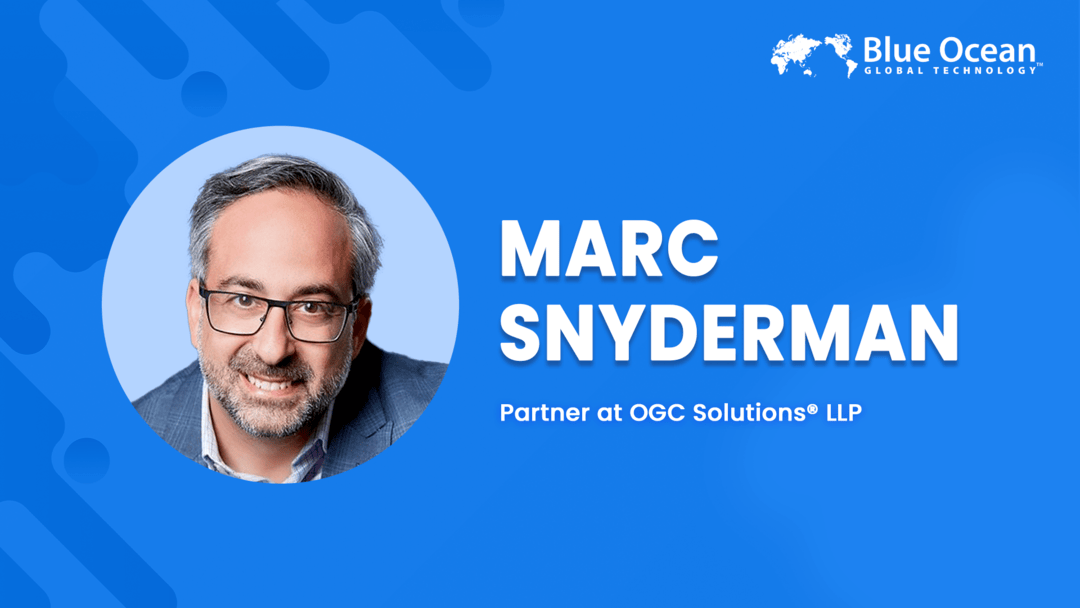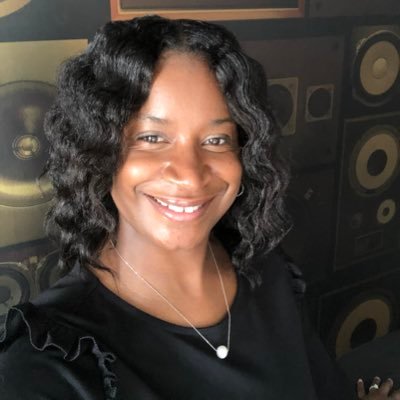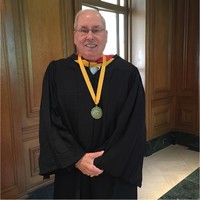About Marc Snyderman
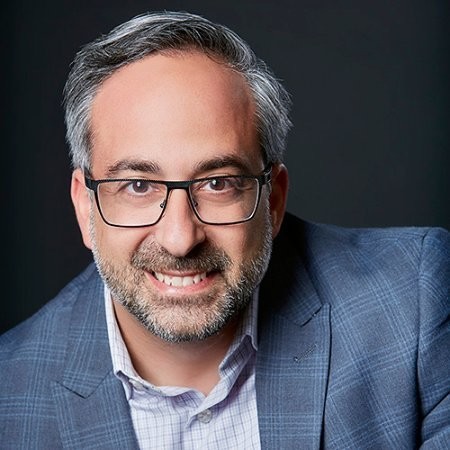
Marc Snyderman is a partner at OGC Solutions® LLP, bringing extensive experience as a general counsel, Chief Compliance Officer, and COO. He specializes in government contracting, technology, risk management, employment law, and strategic consulting. Previously, he served as COO and General Counsel at UTRS, driving growth and risk mitigation. Prior to that, he managed IPOs, acquisitions, and litigation at Insight Communications. A Rutgers Law graduate, Marc is admitted to practice in New Jersey and New York. He actively contributes to industry panels, pro bono initiatives, and advisory boards, leveraging his expertise to support businesses and the legal community.
Tell us about your professional journey. What inspired you to transition from a C-suite executive to an entrepreneur disrupting the legal services industry?
I always wanted to be a corporate and securities attorney, and I started my career in a Midtown Manhattan law firm. But the grind—long hours, minimal impact—made me realize it wasn’t the right fit. I moved in-house, working on litigation and M&A for a cable company, then transitioned to a smaller government contracting firm. That’s where my entrepreneurial side kicked in.
Growing the company from $15M to $60M, I saw firsthand the limitations of big law firms. They were expensive, reactive, and inaccessible to small businesses. So, in 2016, I launched my own law firm—built like a startup, with a subscription model, tech-driven efficiency, and a focus on proactive legal support. Now, I run a venture studio and multiple businesses, helping companies grow while rethinking how legal services should be delivered. It’s about impact, not just billing hours.
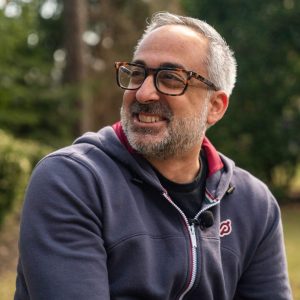
Your approach challenges the traditional law firm model, offering SMBs a more accessible, subscription-based legal service. What key insights led you to develop this model, and how has it reshaped client relationships?
Traditional law firms expect clients to come to them—big offices, high hourly rates, and little accessibility. I flipped that model. From day one, I kept overhead low and went to my clients instead. Pre-COVID, I even worked from their offices, embedding myself in their culture and operations. This hands-on approach built stronger relationships, making legal guidance proactive rather than reactive.
With a subscription model, teams—from accounting to contracts—can call me directly without worrying about the meter running. That means CEOs stay focused on strategy while legal issues get resolved efficiently. It’s all about making legal services an integrated, accessible part of a business, not an expensive last resort.
What does a typical day look like being a partner at OGC Solutions® LLP?
No two days look the same! Being a partner at OGC Solutions® LLP means balancing legal advisory work with my venture studio and startups. My mornings start early—checking news, legal updates, and emails to see what’s urgent for clients. The day quickly shifts into back-to-back Zoom calls, consultative discussions, and problem-solving.
While I handle some transactional legal work, I push deep-dive drafting and document reviews to the weekends. Weekdays are packed with meetings across my different companies, strategizing growth, and tackling unexpected legal challenges that always seem to pop up. It’s a mix of law, business, and entrepreneurship—fast-paced, dynamic, and never boring.
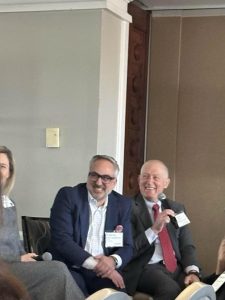
You emphasize technology as a key driver in advancing legal services. What emerging legal tech trends do you see playing a significant role in shaping the future of outside general counsel services?
Legal tech is evolving fast, and AI is a game-changer—especially for contract drafting, document management, and trademark work. While I still rely on my own contract library, I see AI-powered tools making legal services more efficient. The challenge? Most legal tech tries to force attorneys into rigid workflows instead of adapting to how we actually practice. That’s why we haven’t seen a true gold standard emerge yet.
Beyond AI, communication tools designed specifically for attorneys could revolutionize how we interact with clients. The legal industry has resisted tech for years, but the firms that embrace smart automation and AI-driven insights will be the ones delivering the most value in the future. It’s all about using technology to enhance—not replace—human expertise.

As someone who has successfully integrated legal strategy with business growth, what advice would you give to entrepreneurs looking to navigate complex regulatory landscapes while scaling their businesses?
I think knowing what you don’t know is probably the first thing. Most entrepreneurs, a lot of us, run before we walk, or even crawl. So, you’ve got to figure out how to get the right people on your team who actually understand the regulatory framework and give you the pieces you need to mitigate risk. That’s where, obviously, AI can help, but an attorney will give you what you really need. I use all the technology and Google and everything else out there as, say, 80% of the solution. I tell people all the time, there’s nothing wrong with LegalZoom; it’s a great product. It was built by attorneys. It’s not like the contracts there are bad. They’re all solid form documents. It’s 80% of what you need. The 20% is what an attorney will get you from here to here. And the same thing happens with regulatory stuff. You can probably understand 80% of what a regulation is. But the legal analysis, the legal mind—the reason people go to law school—is because many of us have a certain analytical ability, we learn things, and we have a logical reasoning ability to apply to something that other minds don’t have. And the entrepreneur doesn’t always have that mind. A lot of times they’re creative, and they don’t think that way at all. So, having someone on your team who does think that way will balance you out. You need that yin and yang.
Outside of being analytical, I’m quite curious to know what you’d say is one characteristic you’re grateful to have and think has contributed to your success.
Stick-to-it-iveness. I can stay on something; I don’t give up. It takes a lot for me to give up. I have to know I’ve pushed it to the end. And that, in and of itself—for every entrepreneur—that resilience and stick-to-it-iveness is what will get you through, because you will hit hurdles, you’re going to hit bumps. Sometimes you get walls in front of you. You have to either figure out how you’re going to climb over them, or you’re just going to stop. And there are times when you have to pull the plug on something because it isn’t right. But if you believe in what you’re doing, and you’ve shown you have at least a little bit of traction, you should stay with it.
Beyond your legal and business expertise, what personal values or experiences have shaped your approach to leadership and decision-making?
I would say family has to be number one. Without your family, and without your significant other supporting you, you can’t get anywhere. We’re super fortunate. My wife had a great job when we were younger. She decided to stop working after our daughter was born, and I’ve been fortunate that she hasn’t had to work since then. She’s never had to go back to work. She’s been able to run the house, and she’s got a harder job than I do all day long, running the house, dealing with everything. That, I would say, is critical to where I am. I would say it’s also my belief system and faith, and that’s also part of where I am.
Having a strong belief—I’m not a preaching person, I don’t preach about God—but I do believe that whatever your belief is, God, whatever system you believe in, religion, it is important to that person and helps form how you act and how you do things. And having a strong ethical base is everything to me. If you’re not ethical, I will jettison a client in a heartbeat if I don’t think they’re ethical. For my venture studio, the only thesis that I have in terms of how I pick companies that I want to work with is a very simple line: I don’t work with assholes. I won’t. And that’s kind of where I’ve gotten to in my life.
And I think finding a way to do that through your career is hard, especially in the legal profession. My first job as a lawyer, I got screamed at in every way, shape, or form by the senior partners, in front of everyone. I got asked if I got my law degree in a bubble gum machine. Most of you probably have never even seen a bubble gum machine, have you? You’ve heard of these kinds of things. But it was a normal occurrence to get screamed at and yelled at. And I don’t think that that’s any way to run a business or life or do any of it. So, that’s a long-winded, rounded answer to your question.

Outside of your legal and entrepreneurial work, what passions or interests bring you balance and inspiration?
Outside of my legal and entrepreneurial work, what brings me balance and inspiration really boils down to my personal values. Exercise and mental health are absolutely critical – I’d almost call them two sides of the same coin. Early in my career, I went through a pretty significant bout of depression. I’ve been through the whole process: therapy, medication, the works. And I’m completely open about discussing it. I actually talk about it quite a bit because I think it’s so important to destigmatize the fact that we all have issues. Life happens, and you need to work through things. So, practices like meditation are really helpful for me.
I also love to cook; it’s a real passion. And, well, I enjoy wine… perhaps a little too much, or maybe just enough! I also love to travel – that’s a big one for me. And finally, I’d say hiking, reading, and sports – all the usual stuff. Nothing too unusual there, really.
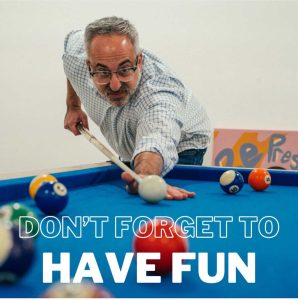
Is there a guiding philosophy or quote that has influenced your career and entrepreneurial journey?
I guess you could say, “Be kind.” That’s really all I want out of people. And it’s probably one of the hardest parts of being a lawyer, is that you engage with so many people that aren’t kind. You just don’t… it’s hard to understand why they have to be that way. They don’t have to. They choose to be in a way that isn’t really necessary. It’s funny. So, I’m not sure how much you’ve seen, but the practice of law is very different in different cities in the United States. It’s really weird. Philadelphia, where I live, in the Philadelphia area, lawyers are very antagonistic. They fight everything. They just fight. Every one of them just wants to. When I lived in New York, you would think that it was much more of a fight, but there was a much more collegial environment in New York than there is in Philadelphia. And each city I kind of look at, you see the way they treat people a little differently. And it’s very much the city that thrives on it. So, I would say if you could figure out a way to get people to be kinder to one another, things would be a whole lot easier.
Conclusion
Marc Snyderman’s career trajectory, from corporate counsel to legal entrepreneur, showcases the evolving landscape of legal services and the increasing demand for accessible and proactive legal solutions for SMBs. His approach of technology, subscription-based models, and client-centric approaches challenges traditional law firm structures and emphasizes the importance of integrating legal strategy with business growth. His emphasis on ethical conduct, strong personal values, and work-life balance further underscores the multifaceted nature of leadership in the legal profession.
Do you have a personal or professional story that can inspire other people into becoming the best version of themselves?
You are welcome to share your journey with our audience.

